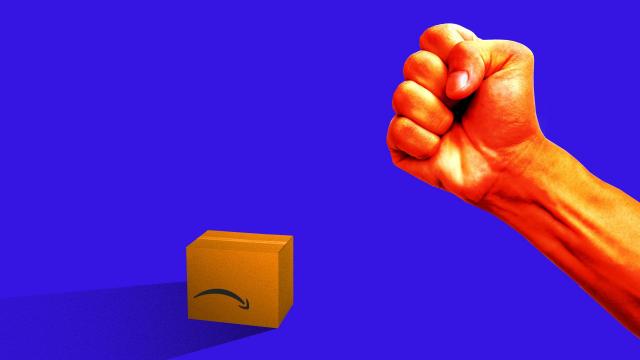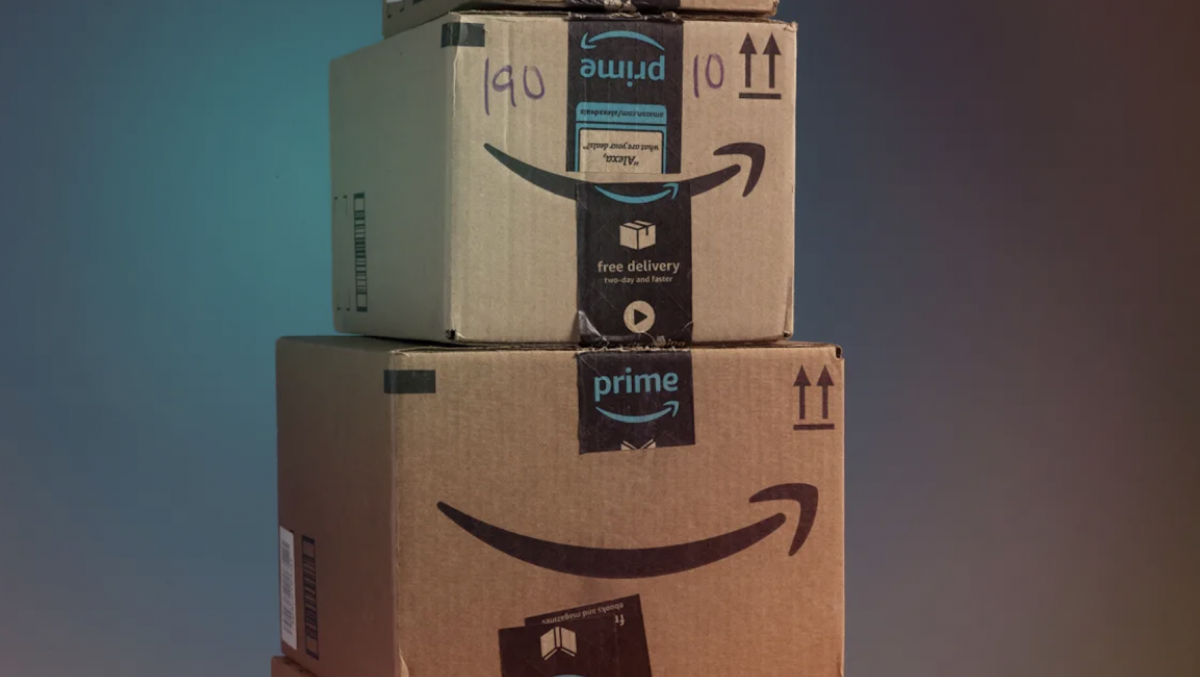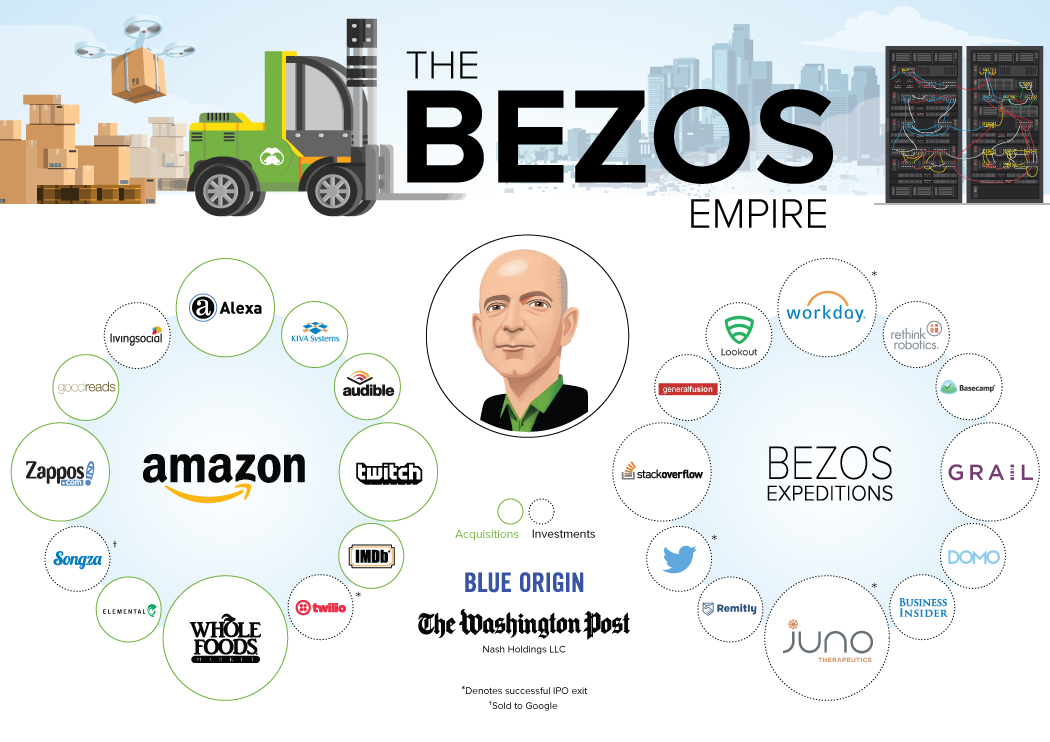
This is Part 3 in a three-part series looking at the impacts of Amazon on government, surveillance and the democratic process. Read the first part and second part.
Amazon has continued to expand its influence on policy and on government over the past decade. We laud Jeff Bezos as the richest man in the world and how he rose to the top by his own bootstraps. Many imagine him as a self-starter, an entrepreneur, a visionary. But the fact remains that Jeff has used his vast wealth to influence policy and laws to favor his business practices. Amazon has pushed others aside in order to procure its vast influence on politics and legislation.
Granted, Amazon is not alone in this endeavor. It's no secret that corporations endlessly lobby to get what they want - and are largely successful in buying their way to power. However, the amount that Amazon has spent purchasing political influence has recently skyrocketed. In fact, all members of Big Tech spent record amounts lobbying the U.S. government in 2018: to be precise, Google, Amazon and Facebook doled out a combined $48 million, an increase of 13 percent on the previous year. (Apple by contrast decreased its lobbying spending last year.)
For context, in 2013, Amazon spent $3.5 million on lobbying. The next year it spent $4.7 million, and in 2015 the number jumped to $9.1 million. Since 2013, Amazon’s spending on lobbying has quadrupled – rising to $13 million dollars in 2017. The company spent $14.4 million lobbying in 2018 alone, and spent more than $44 million over the last four years.
Amazon has developed a business tactic wherein the company come up with a business idea, then goes to Congress to lobby for its approval. In 2006, Amazon lobbied the USDA for the first time, ahead of launching Amazon Fresh grocery delivery in 2007. In 2012, it lobbied the USPS for the first time, before announcing Sunday delivery in partnership with the USPS.
In 2013, it lobbied the FAA on drones in the same year that Jeff Bezos announced work on drone delivery. Additionally, Amazon worked with the Treasury Department after striking a deal with Texas asking the state to drop its demand for millions in back taxes. In 2016, the company lobbied the Department of Defense before its contracts with the government became more commonplace and lucrative.
Amazon's revolving door
Interestingly, Amazon has consistently and substantially given more money to Democrats than Republicans. In total, the company has donated almost $300,000 to the Democratic Congressional Campaign Committee, DNC Services Corp and the Democratic Senatorial Campaign. Amazon has also donated on average $75,000 to Democrats such as Beto O’Rourke, Kim Schrier, Maria Cantwell and Heidi Heitkamp. The top donor is the With Honor Fund, an organization that works to elect “the next generation veterans to Congress”.
At the same time, some of Amazon’s executives have held previous roles in government. Jay Carney, who served as Joe Biden’s director of communications from 2008 to 2011, and from 2011 to 2014 served as the White House press secretary for President Obama, has been Amazon’s senior vice president of worldwide corporate affairs since 2015.
Additionally, Open Secrets revealed that 83 of 115 Amazon.com lobbyists have previously held government jobs.
Amazon, like other Big Tech companies, reveres former government workers for their intricate understanding of the legislative process. Viveca Novak, a director at the Center for Responsive Politics, perhaps said it best: “People who have held key posts in the administration or in Congress are prized in the private sector because of their connections and their knowledge of how the process works, two things that are instrumental to getting anything done – or undone – in Washington. The private sector believes these former government workers are often worth the princely sums they are paid, given how much money can be at stake when business interests intersect with public policy.”
“To the degree that they are trying to influence government policy without registering as lobbyists – and they don’t have to as long as they are providing ‘strategic advice’, for instance, to a colleague who is doing the more direct lobbying – the public isn’t fully informed about who’s behind an effort,” Novak said.
Inordinate influence: Call it bribing politicians
So here's the score: Amazon takes all of the money that it saves by not paying taxes, and the money that it receives in federal tax credits, and uses that cash to further manipulate and change policies that make room for its newest innovations. Instead of asking permission from government and the taxpayers, it bribes members of Congress and governmental institutions to sanction its latest projects and ideas.
It's no secret that powerful companies like Amazon have gained – and maintained – their power because they use their wealth and status to inordinately influence the legislative and political process. To them, government is nothing more than a tool to get more of what they want. To that end, they hire lobbyists and use super PACS to alter laws so that they are unaffected by the standards applied to the middle class. They buy up media outlets to control the flow of information (Jeff Bezos purchased the Washington Post, for example) and hire previous government workers to maximize their political influence.
Imagine if the money spent on lobbying were instead donated or recycled back into the economy to support our most vulnerable citizens: the mentally ill, the elderly, the uninsured or underinsured, the hungry, the unemployed, or the terminally ill. Instead, already superbly wealthy companies use that wealth to accumulate more power – simply for the sake of acquiring more power and more wealth. The tax breaks that We the People provide these businesses, and the proverbial “green light” we give them on their new technological innovations, do nothing to improve the general public’s standard of living. They simply further consolidate unprecedented amounts of largesse and political power.
Many citizens still imagine that our government plays a role as the regulatory body over American companies and commerce. But in fact the reverse is turning out to be true: Corporations like Amazon are becoming supranational and the government is, in response, subservient to them.
Citizens must work together to reclaim the power that properly belongs to the people in order to reverse this disturbing trend.















